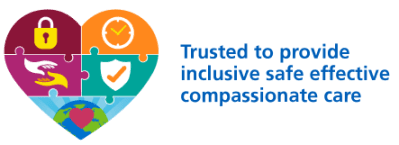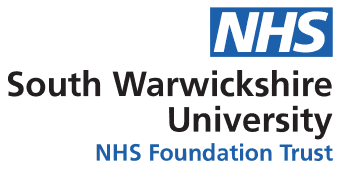South Warwickshire University NHS Foundation Trust is committed to making sure that people who have a disability, impairment or sensory loss get information that they can access and understand, and any communication support that they need.
The Accessible Information task and finish group is chaired by the Director of Nursing, the group is responsible for the implementation of AIS, British Deaf Association Charter and improving accessibility to our buildings and clinics.
The Group meets every 2 months and there are 4 work streams that report into the task and finish group and each work stream has developed a work plan. The Task and Finish group provides regular progress reports to the Equality and Diversity Steering group who are responsible for monitoring compliance with the standard.
The work streams include:
- Accessibility I.T. Accessibility Work-Stream
- Accessible Facilities Work-Stream
- Commissioning and Procurement
- British Deaf Association Charter and Interpreting Services Work-Stream
Accessible information standard
Easy read Accessible information
View the Accessible Information Standard Overview 2017/2018 with British Sign Language and subtitles.
View the Accessible Information Standard Overview Audio version.
The Equality & Diversity Steering Group is the formal mechanism by which the Trust can oversee its processes to eliminate discrimination on the basis of gender, marital status, age, disability, race, religion and belief, nationality, ethnicity, sexuality or social class. The group will discuss and commission activities and ensure leadership, accountability and working arrangements to proactively deliver the Trust's Equality and Diversity Agenda and raise awareness of the need for individuals who visit (patients, visitors and carers) and those employed by the Trust to be treated fairly and ensure equality for all.
The Equality and Diversity Steering Group Minutes – February 2018
This Equality Strategy sets out our commitment to the Equality and Human Rights agenda.
The strategy also includes the Trust’s 7 Equality Objectives, addressing disparities in maternity and end-of-life care, improving mental health care, recruitment and staff development, and inclusivity at all levels.
The Equality Delivery System (EDS) has been developed by the NHS for the NHS. It is designed to specifically support service delivery that is fair, equal to all and delivers services that meet the needs of a diverse population.
Implementation of the Equality Delivery System – EDS2 is a requirement on both NHS commissioners and NHS providers.
Warwickshire Race Equality Partnership have developed an End of Life information booklet. The booklet provides information to Relatives and Carers about what support and services are available at end of life. The booklet is available in a number of different languages and in large font, it provides clear sign-posting information to what services and support is available from Health, Local Authorities, Corner Office and voluntary sector organisations. It also provides information on the cultural and spiritual needs, different faiths and their practices before, at the time of and after death.
- End of life booklet - English
- End of life booklet - Punjabi
- End of life booklet - Gujarati
- End of life booklet - Polish
- End of life booklet - Portuguese
- End of life booklet - Large print
Should you require any leaflets to be translated, please contact PALS on +44(0) 1926 600 054 or pals
What is the Workforce Disability Equality Standard?
The Workforce Disability Equality Standard (WDES) is a set of ten specific measures (metrics) that will enable the Trust to compare the experiences of Disabled and non-disabled staff. This information will then be used by the Trust to develop a set of actions in partnership with the local Workforce Disability Network.
- NHS Workforce Disability Equality Standard Metrics
- Workforce Disability Equality Standard Report 2025
- Workforce Disability Equality Standard Report 2024
- Workforce Disability Equality Standard Report 2023
- Workforce Disability Equality Standards Report 2022
- Workforce Disability Equality Standard Report 2021
- Workforce Disability Equality Standards Report 2020
The NHS Equality and Diversity Council announced on July 31 2014 that it had agreed action to ensure employees from black and ethnic minority (BME) backgrounds have equal access to career opportunities and receive fair treatment in the workplace.
The Workforce Race Equality Standards (WRES) report is used to demonstrate progress against a number of indicators of workforce equality, including a specific indicator to address the low levels of BME Board representation. The 9 indicators are made up of: 4 workforce metrics; 4 Staff Survey Indicators; and 1 indicator for Board Membership.
- Workforce Race Equality Standard Report 2025
- Workforce Race Equality Standard Report 2024
- Workforce Race Equality Standard Report 2023
- Workforce Race Equality Standard Report 2022
- Workforce Race Equality Standard Report 2021
- Workforce Race Equality Standard Report 2020
- Workforce EDS2, WRES and WDES Action Plan 2019/20


